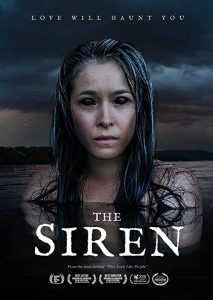 Remember when Harry Potter and the Philosopher’s Stone was released as a book in America? You do not, of course, because some publisher decided we were collectively too stupid to understand the reference and/or to look it up, and gave us a made-up, dumbed down version instead.
Remember when Harry Potter and the Philosopher’s Stone was released as a book in America? You do not, of course, because some publisher decided we were collectively too stupid to understand the reference and/or to look it up, and gave us a made-up, dumbed down version instead.
The opening scenes of The Siren are text cards explaining how a rusalka is created. She is something something betrayed by a man maybe, drowns herself in grief for sure, and then haunts the waterways where she drowned, killing pretty much anyone she can get access to. You know, mostly if they go swimming.
You can see how this is pretty annoying.
Anyway, this mute guy goes on vacation at a lake house which is basically one room about the size of a firewatch tower, but the patio actually overhangs the lake, so, prime real estate I guess? He probably said why he was there, but I forget. (Or he didn’t, that would make sense in this context!) He makes two friends, one a beardy guy who shows him how to get the electricity running at his airbnb, the other a lady who is just always swimming. At his dock? Swimming. When he’s out on the lake for a canoe ride? Swimming. Teaching him how to swim? …well, that one makes sense I guess. On his patio for a lunch date? Foot trailing in the water. There’s maybe something fishy suspicious about the whole thing, if you read about rusalkas somewhere and/or are aware of the movie genre. You know?
Nevertheless, the chemistry is undeniable, and if he can learn how to swim plus she can learn how to not murder him, they may just be able to make a go of it! …well, and if the lakewide body count stops rising and nobody notices that she’s only ever swimming, never sunning or cooking in the kitchen of whatever lakehouse she lives in or sleeping there, just to name a few examples of other things people do when living near lakes.
Then again, that may all be too much to ask.
But getting back to my original point: there are like two characters with dialogue in the whole movie; the mute guy mostly gestures. And okay, under these circumstances, the “siren” does make a lot of the vocal noise in the movie, sure, but she never sings, she never lures anyone anywhere with her supernatural wiles. She just drowns people if she can get to them. The only crossover she has with being a siren is she’s in the water. …and hell, even the original sirens I think hung out on rocks, right?
Ugh. (But I liked the movie otherwise. It had a slow, dreamlike, haunting quality to it. And the rusalka’s nervousness about what to wear and how to impress her man were sweetly endearing, if you leave out how all her jewelry and clothing were stolen, mostly from the corpses of her victims.)
 “Zero point zero megahertz is the frequency at which a person’s soul meets a ghost,” someone technobabbles in like the third scene of
“Zero point zero megahertz is the frequency at which a person’s soul meets a ghost,” someone technobabbles in like the third scene of 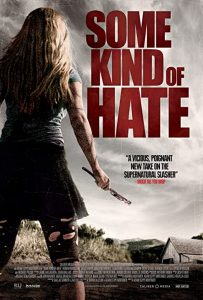
 A small but visible number of movies I’ve watched in the past few years are premised as “what if a haunted house attraction, but bad things are actually happening?” Which makes me wonder, mainly, if these extreme haunts are a thing that really exist. Like, I don’t want to do the thing in this movie where the goal is to probe your psyche and bring you the very worst experiences, because that will… help, somehow? I don’t even know. But someone is actually menacing you with a butcher knife or whatever, and they chase you and things, or… look, I can’t actually imagine any way these could work in real life, which ultimately is my point. But if I’m wrong, someone needs to tell me what is the deal with them, is what I’m saying.
A small but visible number of movies I’ve watched in the past few years are premised as “what if a haunted house attraction, but bad things are actually happening?” Which makes me wonder, mainly, if these extreme haunts are a thing that really exist. Like, I don’t want to do the thing in this movie where the goal is to probe your psyche and bring you the very worst experiences, because that will… help, somehow? I don’t even know. But someone is actually menacing you with a butcher knife or whatever, and they chase you and things, or… look, I can’t actually imagine any way these could work in real life, which ultimately is my point. But if I’m wrong, someone needs to tell me what is the deal with them, is what I’m saying.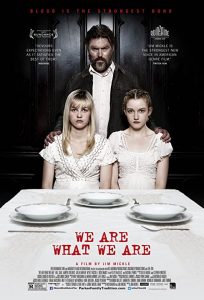 A proposition: if we accept that gothic horror must include a lonely countryside castle, then it (necessarily?) follows that American gothic horror must include a lonely farmhouse in the country. There is even, I believe, pre-photographic evidence of this.
A proposition: if we accept that gothic horror must include a lonely countryside castle, then it (necessarily?) follows that American gothic horror must include a lonely farmhouse in the country. There is even, I believe, pre-photographic evidence of this. I finished Anne Leckie’s Ancillary trilogy yesterday, and it comes with a realization that I had completely failed to anticipate what the story was actually about.
I finished Anne Leckie’s Ancillary trilogy yesterday, and it comes with a realization that I had completely failed to anticipate what the story was actually about.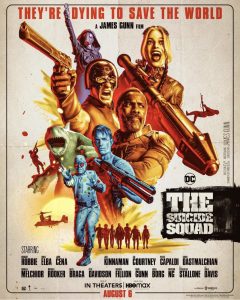 I remember liking
I remember liking 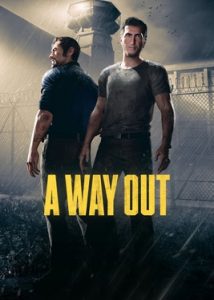 I found it difficult to classify
I found it difficult to classify 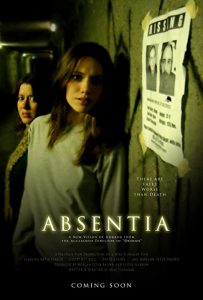 Here’s the thing: if you made a movie about having to declare someone legally dead because they’d been missing for so long that you have to accept that they won’t come back, but you also have to go through all the emotional trauma that you’ve been holding out against for so long, and so you’re packing up to move, you’re filing this paperwork that makes it real but will also allow you to get out from underneath years of crushing debt, and you have to deal with the trauma of that being a main driver of accepting it, because now you can finally get insurance payouts, but still you don’t even know if he’s dead, and you keep having visions of him, evil-ghostly-pissed as you bridge each milestone on the path to it’s finally over, he is now according to the county-issued certificate of death in
Here’s the thing: if you made a movie about having to declare someone legally dead because they’d been missing for so long that you have to accept that they won’t come back, but you also have to go through all the emotional trauma that you’ve been holding out against for so long, and so you’re packing up to move, you’re filing this paperwork that makes it real but will also allow you to get out from underneath years of crushing debt, and you have to deal with the trauma of that being a main driver of accepting it, because now you can finally get insurance payouts, but still you don’t even know if he’s dead, and you keep having visions of him, evil-ghostly-pissed as you bridge each milestone on the path to it’s finally over, he is now according to the county-issued certificate of death in 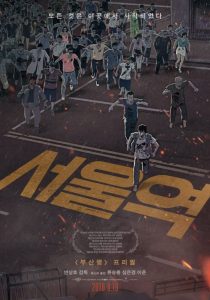 According to the write-up,
According to the write-up,